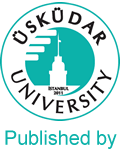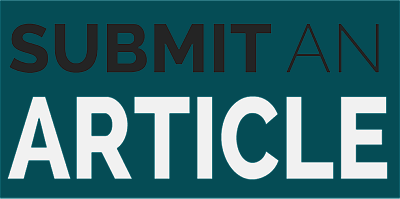Years
2020
Categories
Authors
ARTICLES
Original Article
Turkish Title : THE DISTRIBUTION OF BRAIN-DERIVED NEUROTROPHIC FACTOR (BDNF) RS6265 POLYMORPHISM IN TURKISH VOLLEYBALL PLAYERS
Polat Tolga,Doğan Canan Sercan,Eken Başak Funda,Yılmaz Özlem Özge,Şılar Çisem,Karapınar Gözdem,Baltacıoğlu Begümsu,Ekmekçi Rıdvan,Ulucan Korkut
JNBS, 2020, 7(3), p:147-151
Athletic performance is associated with many environmental factors such as inborn genetic factors, nutrition, psychological factors, and education. We aimed to analyze the brain derived neurotrophic factor (BDNF) rs6265 polymorphism, which is an important genetic marker related to psychological factors, in 21 professional female volleyball players and compare it with the control group. Genotyping was assessed by Real-time PCR technique. BDNF rs6265 polymorphism genotypes were calculated as 72% and 28% for GG and GA in volleyball players, respectively. No AA genotype was detected. In the control group, the GG, GA and AA genotype percentages were calculated as 57.8, 36.3 and 5.9, respectively. In the allelic distribution, the percentages in the athlete group were calculated as 86% (36) for the G allele and 14% (6) for the A allele, respectively. In the control group, for the G and A alleles, respectively; it was 76.25% and 23.75%. No statistical significance was found in terms of both genotype distribution (p = 0.407) and allelic frequency distribution (p = 0.218). Our results were in line with data indicating the stress and anxiety-related nature of professional volleyball players. More studies with more athletes and more groups of athletes are needed to understand the effect of these parameters on volleyball players.
Athletic performance is associated with many environmental factors such as inborn genetic factors, nutrition, psychological factors, and education. We aimed to analyze the brain derived neurotrophic factor (BDNF) rs6265 polymorphism, which is an important genetic marker related to psychological factors, in 21 professional female volleyball players and compare it with the control group. Genotyping was assessed by Real-time PCR technique. BDNF rs6265 polymorphism genotypes were calculated as 72% and 28% for GG and GA in volleyball players, respectively. No AA genotype was detected. In the control group, the GG, GA and AA genotype percentages were calculated as 57.8, 36.3 and 5.9, respectively. In the allelic distribution, the percentages in the athlete group were calculated as 86% (36) for the G allele and 14% (6) for the A allele, respectively. In the control group, for the G and A alleles, respectively; it was 76.25% and 23.75%. No statistical significance was found in terms of both genotype distribution (p = 0.407) and allelic frequency distribution (p = 0.218). Our results were in line with data indicating the stress and anxiety-related nature of professional volleyball players. More studies with more athletes and more groups of athletes are needed to understand the effect of these parameters on volleyball players.
Original Article
Turkish Title : Profesyonel voleybolcularda slc6a4 promotör l/s polimorfizminin belirlenmesi ve literatür karşılaştırılması
Yiğit Selin,Polat Tolga,Doğan Canan Sercan,Tunalı Seçil,Ekmekçi Rıdvan,Ulucan Korkut
JNBS, 2020, 7(2), p:65-69
We aimed to determine the genotype and allele distributions of the serotonin transporter protein gene (SLC6A4) promoter L/S polymorphism in volleyball players and compare it with the previous studies in the literature in this study. For this purpose, 21 volleyball players participated in our study. Genotyping was performed by PCR after DNAs were isolated from buccal cells. The literature review has been done in Google Scholar and PUBMED databases with the keywords and combinations of “sports, athletes, genetics, SLC6A4, sports genetics, polymorphism”. In our cohort, LL, LS and SS genotypes were found in numbers and percentages as 10 (48%), 7 (33%) and 4 (19%), respectively. The respective L and S allele count numbers and percentages were 27 (64%) and 15 (36%). 9 different studies matched our criteria and compared with our findings with literature review. As a result, the low percentage of SS genotype in terms of genotype distribution was common with the previous studies and our findings. The S allele percentage was higher than our results just in one research. Recent studies have shown that the “S” allele is associated with anxiety. Our study was the first report to show that the LL genotype and L allele in volleyball players are higher than the SS genotype and S allele.
Çalışmamızda, voleybolcularda serotonin taşıyıcı protein geni (SLC6A4) promotör L/S polimorfizminin genotip ve allel dağılımlarını belirlemeyi ve literatürde bulunan önceki çalışmalar ile karşılaştırmayı hedefledik. Bu amaçla çalışmamıza 21 voleybolcu katıldı. Genotipleme işlemi, yanak içi epitel hücrelerinden DNA elde edildikten sonra PCR ile gerçekleştirilmiştir. Literatür taraması Google Akademik ve PUBMED veri tabanlarında “spor, sporcu, genetik, SLC6A4, spor genetiği, polimorfizm” anahtar kelimeler ve kombinasyonları ile yapılmıştır. Kohortumuzda LL, LS ve SS genotipleri sayı ve yüzde olarak sırasıyla 10 (%48), 7 (%33) ve 4 (%19) olarak bulundu. L ve S allel sayı ve yüzdeleri ise sırasıyla 27 (%64) ve 15 (%36) olarak bulunmuştur. Yapılan literatür araması ile 9 farklı çalışma kriterlerimize uygun bulunmuş ve bulgularımız ile karşılaştırılmıştır. Sonuç olarak, genotip dağılımı açısından SS genotipinin yüzdece düşük olması, diğer çalışmalar ve bizim bulgularımız ile ortaktır. Sadece bir çalışmada S alleli yüzdece daha fazla bulunmuştur. Son dönemlerde yapılan çalışmalar “S” allelinin anksiyete ile ilişkilendirildiğini göstermiştir. Çalışmamız, voleybolculardaki LL genotip ve L allelinin, SS genotip ve S allelinden yüzdece daha yüksek olduğunu gösteren ilk rapordur.
| ISSN (Print) | 2149-1909 |
| ISSN (Online) | 2148-4325 |
2020 Ağustos ayından itibaren yalnızca İngilizce yayın kabul edilmektedir.


